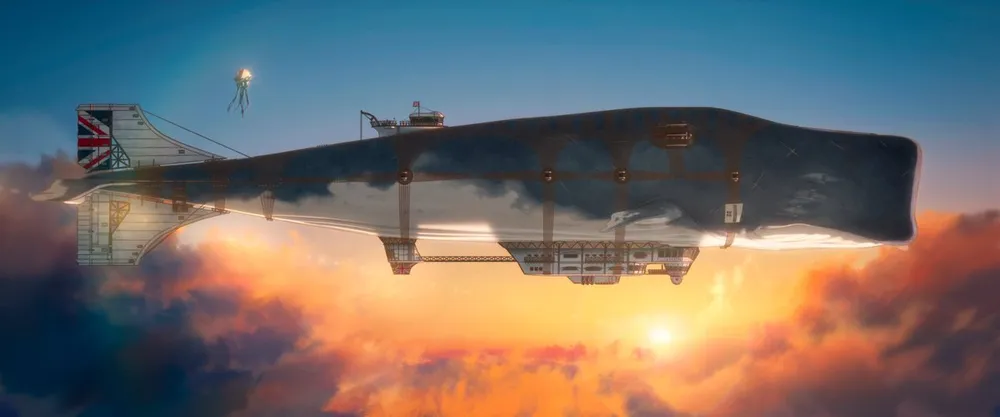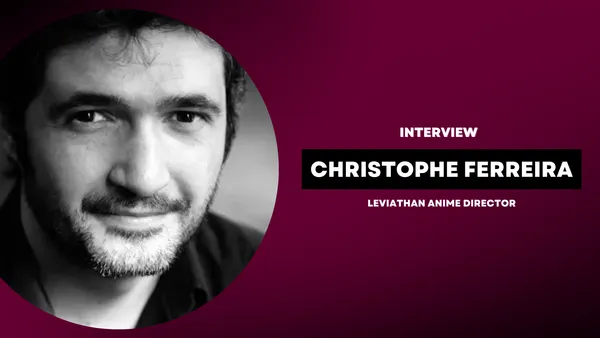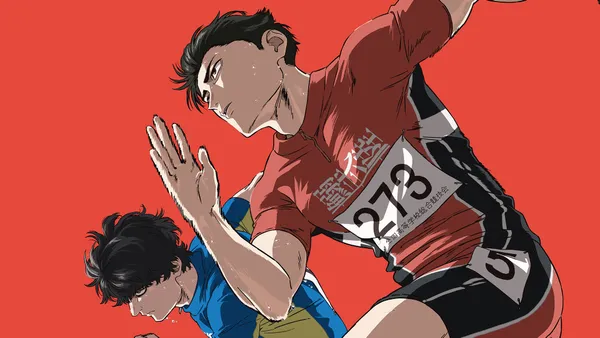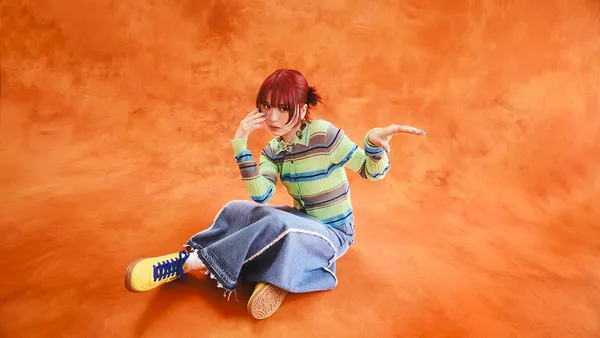Interview: Producer Justin Leach Talks Leviathan
Following the release of the Leviathan anime adaptation this summer, we had a chance to chat with one of the producers, Justin Leach. Leach is a founder of Qubic Pictures, one of the companies involved in the production of the unique retelling of WWI, which is adapting Scott Westerfeld's novels.
Qubic Pictures partnered with studio Orange to create the series, currently streaming on Netflix, as one of the latest anime productions to "cross borders." We got to learn more about this process, Joe Hisaishi's involvement, and details about the adaptation.
Q: Japanese adaptations of Western novels tend to be of older works and “classics,” such as the recent Anne Shirley remake and, famously, many of Hayao Miyazaki’s works; but Leviathan is a relatively recent novel. How did the idea of adapting it come about, and when?
A: That’s a great observation. Historically, Japanese adaptations of Western literature have leaned toward classic works—timeless stories that carry universal themes. But I’ve always believed that “contemporary classics” exist too—stories that speak directly to today’s audiences while still having that timeless narrative DNA. Leviathan struck me as one of those.
The idea to adapt Leviathan into an anime first emerged in 2019 when Taiki Sakurai, then at Netflix Japan, approached me about adapting the trilogy. He and I shared a passion for creating meaningful international collaborations, and Leviathan felt like the perfect bridge—melding alt-history, steampunk aesthetics, and big adventure with themes of identity and conflict that resonate globally. It was a bold and modern story, yet one that could find a natural home in the anime medium.
Q: Can you tell us a bit about how the staff for the project was chosen?
A: From the outset, we wanted a team that could balance scale and intimacy—people who could not only bring Leviathan’s massive world to life, but also connect emotionally to its characters.
We partnered with Studio Orange because of their unmatched expertise in 3D anime production and their track record of pushing the medium forward. But beyond technical prowess, Orange also understands story on a deep level. Our director, Christophe Ferreira, is bicultural—of French origin who has lived and worked in Japan for decades—and brings a unique international lens, which was vital for a project that exists at the intersection of East and West.
Our core team blended seasoned anime talent with creatives who had global sensibilities, and that mix allowed Leviathan to evolve into something both culturally authentic and globally accessible.
Q: Original author Scott Westerfeld is an executive associate producer (共同エグゼクティブプロデューサー) on the project. Could you explain this role to us in terms of this production?
A: Scott’s title as co-executive associate producer reflects his deep involvement in guiding the adaptation from a narrative standpoint. He wasn’t just a name in the credits—he was actively involved in script development and creative discussions throughout.
Q: How would you describe his involvement in the adaptation? Did he have any specific requests?
A: Scott was a true collaborator. He understood that anime has its own storytelling language, and he gave us the freedom to reinterpret elements of the book while still staying true to the heart of the story. That said, he was very thoughtful in pointing out key moments and themes he felt were essential to preserve—like the evolving relationship between Deryn and Alek, or the emotional undercurrents of war and technology.
One of his greatest contributions was helping us understand the deeper mythology and emotional arcs behind his world.
Q: Adapting the whole trilogy into 12 episodes must have been challenging. Why was this chosen?
A: Absolutely—it was one of the biggest creative challenges we faced. The decision to adapt the full trilogy in 12 episodes came from a combination of narrative ambition and production constraints. From the start, we knew this was going to be a dense story with rich world-building and complex character arcs, so we approached it like crafting a single cinematic experience divided into episodes—rather than three separate seasons.
We spent a lot of time distilling the core of the trilogy: What was essential? What moments defined the characters? How could we make the emotional journey land, even if we had to leave some scenes behind? It became an exercise in storytelling clarity—one that required a lot of tough decisions, but ultimately led to a focused, emotionally resonant series.
Q: Legendary Joe Hisaishi worked on the theme songs. How did this somewhat unexpected collaboration happen?
A: Joe Hisaishi’s involvement was an absolute honor—and yes, a bit unexpected even for us. The opportunity came through an introduction from Netflix, who were instrumental in supporting the musical vision for the show. When his name first came up, it felt like a dream. But what truly amazed me was how open and curious he was about the project.
Hisaishi-san saw Leviathan not just as an anime, but as a sweeping, emotional journey—one that could benefit from a grand, orchestral touch. His music brought a depth and gravitas that elevated the series beyond what we imagined. It’s rare to work with someone whose melodies feel like they come from the soul of the story—and with Leviathan, he gave us that in every note.
We'd like to thank Justin for taking the time to answer our question in-depth, and we wish him all the best with future work!
Leviathan is streaming on Netflix.




